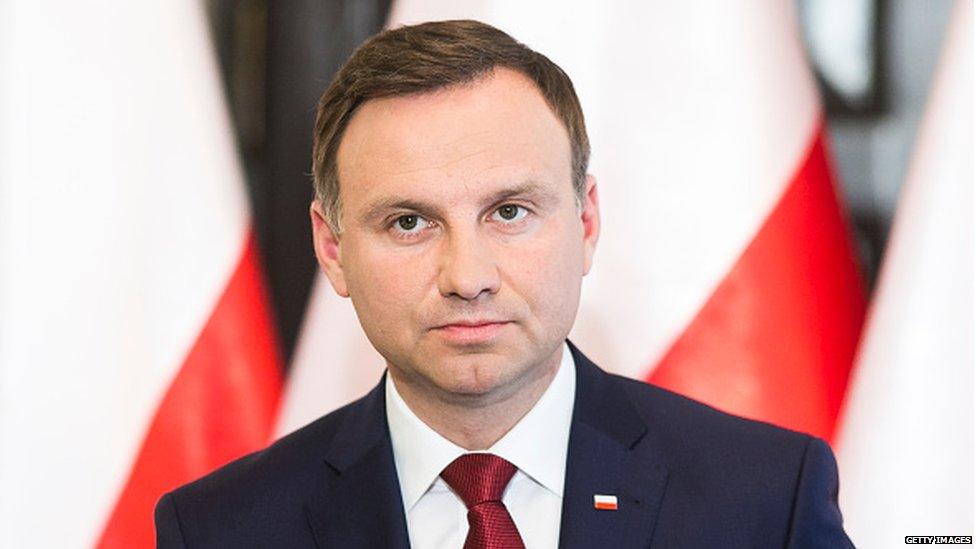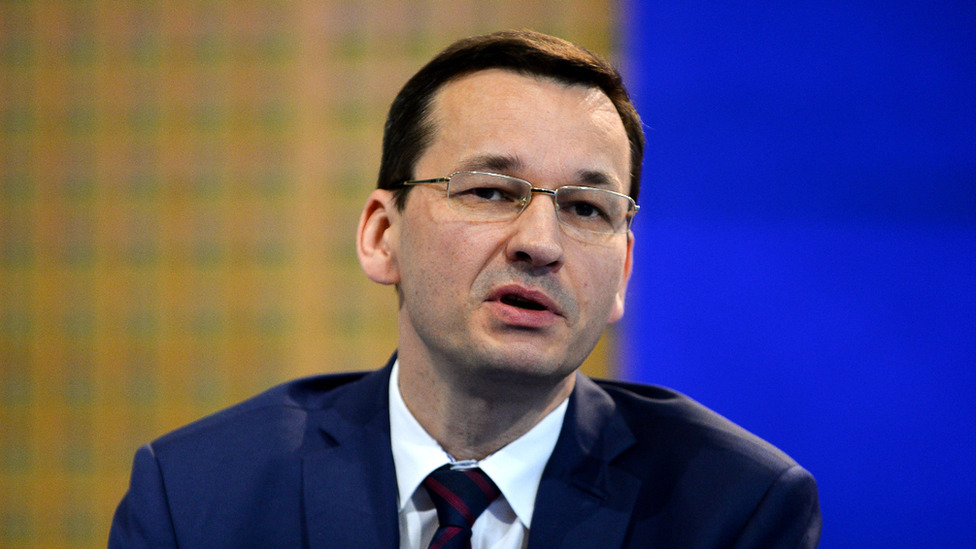Poland profile - Leaders
- Published
President: Andrzej Duda

Andrzej Duda
Andrzej Duda of the conservative, Eurosceptic Law and Justice Party, scored a surprise win in the 2015 election, beating the incumbent Bronislaw Komorowski of the centrist Civic Platform in the closest presidential contest in Poland's history.
Political observers attributed his victory to public dissatisfaction with Civic Platform's failure to boost employment and wages in line with continuing economic growth, and with a rise in the retirement age.
This dissatisfaction also saw Law and Justice win parliamentary elections in October with the first single-party overall majority in Poland's history as a democracy.
Born in 1972 and a law lecturer by profession, Mr Duda has been active in conservative politics since the early 2000s, rising to work in the Presidential Chancellery under Lech Kaczynski in 2008-2010.
He served in parliament in 2011-2014, winning praise for his bipartisan approach in the often highly-charged world of Polish politics, and was later elected to the European Parliament.
Prime Minister: Mateusz Morawiecki

Mateusz Morawiecki was finance minister for two years
Finance Minister Morawiecki took over as head of the conservative Law and Justice party government in December 2017, replacing Beata Szydlo, who moved to the post of deputy prime minister.
Law and Justice leader Jaroslaw Kaczynski dropped Mrs Szydlo in what Polish political analysts see as a move to repair the country's poor relations with the European Union, and prepare the party for a series of elections.
The Western-educated economist Mr Morawiecki has a more polished manner than his predecessor, but shares her strong support for Mr Kaczynski's moves to limit the power of the judiciary, promote a conservative Catholic social agenda, and oppose European Union demands to accept Muslim refugees.